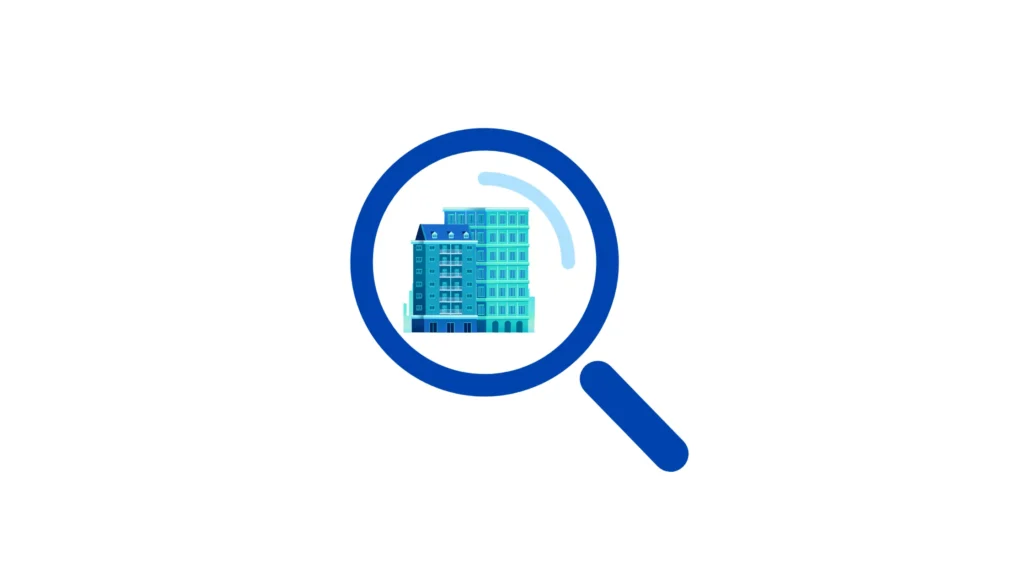Discover proven strategies on how to buy apartment with our comprehensive guide. Learn expert tips to secure your dream home hassle-free and make informed decisions every step of the way.
By the end of this Post, you should be able to:
- Discuss different options for finding a place to live
- Outline steps in the home-buying process
Can I afford an Apartment?
Rather than continuing to rent, you might find that “How to buy apartment” offers significant advantages. Investing in real estate can be a wise financial decision with long-term benefits. When you own a home, you’re not merely making monthly payments to a landlord; instead, you’re contributing to building equity in a property that belongs to you. This equity can grow over time, potentially leading to increased financial stability and future value. Additionally, owning your own home provides a sense of permanence and personal satisfaction that renting often cannot match. It’s not just about having a place to live; it’s about creating a future investment that grows with you.
Before you jump into “How to buy Apartment”, ask yourself
- Can I manage a budget?
- Do I have a good credit history?
- Do I have few debts?
If you answered “no” to any of these important questions, it may be a sign that you need to take some time to get your finances in order and evaluate your financial situation more thoroughly before you begin your house search. Ensuring that your financial health is in a stable and well-organized state can significantly improve your readiness and ability to make informed decisions during the How to Buy Apartment.
- Pay off debts.
- Don’t incur any new debt. Mortgages are based on debt-to-income ratios—what you spend monthly vs. what you bring in. Taking on hefty new debt would throw the ratios off.
- If you are not already on one, get on a budget and follow it. Start putting money aside for a home purchase.
- When you are ready, consult a financial institution for a possible home loan.
Where to look while wondering
Once you have a clear and well-defined idea of the type of place you want to call home, it’s time to explore some valuable resources and platforms that can help you begin your search effectively. From online real estate listings to local property agents and neighborhood guides, these resources will provide you with the necessary tools and information to identify potential homes that align with your preferences and needs. This initial research phase is crucial in narrowing down your options and finding the perfect place that suits your lifestyle and budget.
- Real Estate Agency: Real estate agents can assist you in finding a suitable home. We’ll delve deeper into the role of real estate agents later in this lesson.
- Newspaper Classifieds: You can discover listings for apartments or houses on classified ad websites like Craigslist or in local newspapers and their online versions.
- Housing or Real Estate Guides: These guides, which often include listings, are commonly available at local grocery stores like iloans
- Ask Friends or Family: Your friends and family might be aware of available homes or know someone who is moving and looking to sell.
- Websites: Many real estate agencies have online platforms showcasing their property listings. Additionally, housing guides often have their own websites.
- Community Bulletin Boards: Notices about homes for sale are frequently posted on bulletin boards at community centers or libraries by homeowners looking to sell.
- For-Sale Signs: Look for signs in front of properties; many real estate agencies and individual sellers use these to advertise available homes.
Finding a Apartment

To find how to buy apartment, many people choose to collaborate with a real estate agent. These professionals have access to extensive databases that provide information on available apartments, including pricing, unit size, and details such as the number of rooms and amenities. By being specific about your preferences and requirements, you can streamline the apartment search process and make it more efficient. A real estate agent’s expertise and resources can greatly simplify the process, helping you find an apartment that best matches your needs and budget. The clearer you are about your criteria, the more smoothly the search and buying process will proceed.
Consider the following:
- How much square footage is the Apartment?
- How many bedrooms and bathrooms does it have?
- How much storage space exists?
- Does it have a large or small yard?
As you search for how to buy apartment, it’s important to consider various neighborhood factors that can impact your decision. Evaluate the quality of nearby public schools, the availability of parks and community centers, and proximity to economic hubs and shopping areas. Additionally, take into account local crime rates to ensure a safe and comfortable living environment. By thoroughly assessing these elements, you can choose a neighborhood that aligns with your lifestyle and provides convenient access to essential services and amenities. A well-rounded view of the area will help you find an apartment in a community that meets all your needs and preferences.
Making an offer
Once you find an apartment you like, your real estate agent can help you make an offer, handle negotiations, and assist with the necessary paperwork. They can also connect you with a title company to ensure the apartment’s title is clear of any liens or issues. Additionally, your agent can recommend a reputable home inspector for a pre-purchase inspection, typically costing between $200 and $500. Ensure any significant problems, excluding cosmetic defects, are addressed by the seller before finalizing the purchase.
In most states, sellers are required to disclose known defects, but they are not liable for issues they were unaware of. Request a Seller’s Disclosure report to review any known problems with the apartment.
How much does that Apartment cost?
Here are the costs and factors associated with how to buy apartment:
- Earnest Money: This deposit, typically 1-3% of the purchase price, shows your seriousness. It’s held by the title company until closing.
- Down Payment: Required for purchasing an apartment, usually 3-20% of the sale price. For a $130,000 apartment, this ranges from $3,900 to $26,000. Plan ahead to determine what you can afford.
- Mortgage: You’ll likely need a mortgage for the remaining amount. A higher down payment can lead to a larger loan and may eliminate the need for private mortgage insurance.
- Closing Costs: Fees for processing the loan, handling paperwork, surveying, and recording the deed. These vary, so get an estimate from your lender. They may need to be paid in cash at closing if not included in the mortgage.
- Points: These are 1% of your mortgage amount and are paid upfront. Paying points can lower your interest rate and closing costs.
- Mortgage Rates: Check current rates in your area, often listed in local newspapers.
The housing loan
Now that you’re familiar with the housing buying process, for “how to buy apartment” consider the steps required to secure a home loan or mortgage. Explore various options and compare offers from local banks, credit unions, mortgage brokers, and online platforms.
Keep in mind that lenders will review your credit history to determine both your eligibility for a loan and the loan amount. This mortgage is repaid to the lender on a monthly basis over a period of 20 to 30 years.
A monthly mortgage payment consists of:
- Principal: Repayment of the original amount borrowed
- Interest: The cost of borrowing the principal amount
- Taxes: Real estate taxes
- Insurance: Homeowners insurance
Before approving a mortgage, your lender will assess the value of similar homes in the area to ensure the loan is a sound investment. Housing prices vary by location, and some loan programs, like Fannie Mae and HUD, have strict requirements on the home’s condition. Most lenders also require inspections, such as for termites and roof repairs, before granting a loan.
There are two basic types of mortgages:
- Fixed mortgage: A fixed term—for example, 30 years—and a fixed interest rate at the start of the mortgage; the monthly amount for the payment of principal and interest will not change during the term of the mortgage
- Adjustable mortgage: Also known as an adjustable-rate mortgage (ARM); interest rates are adjusted up or down based on current interest rates set by the federal government; principal and interest payment goes up and down with these rate changes

